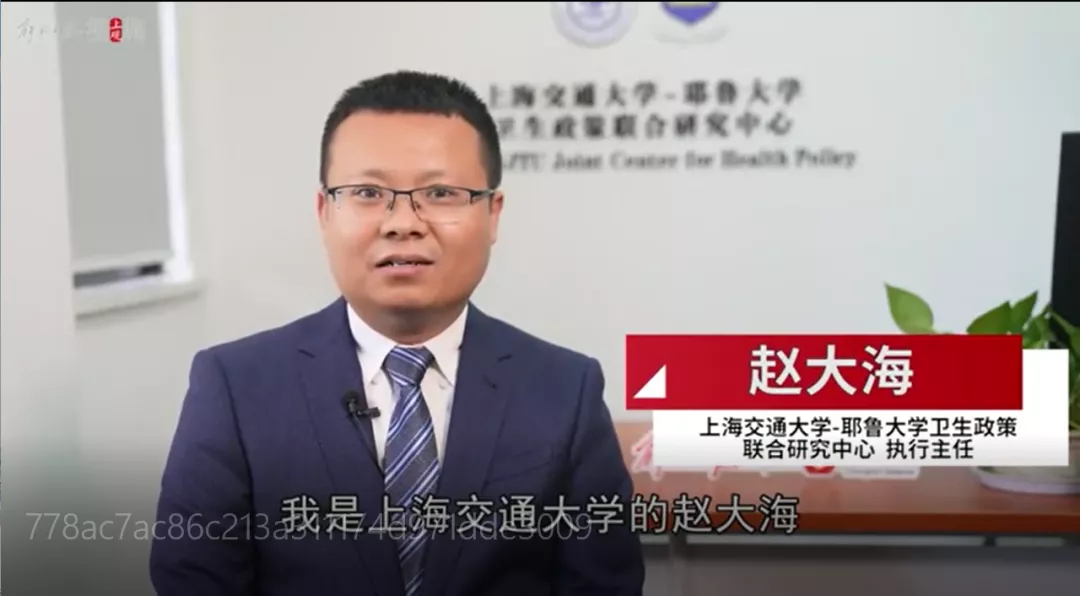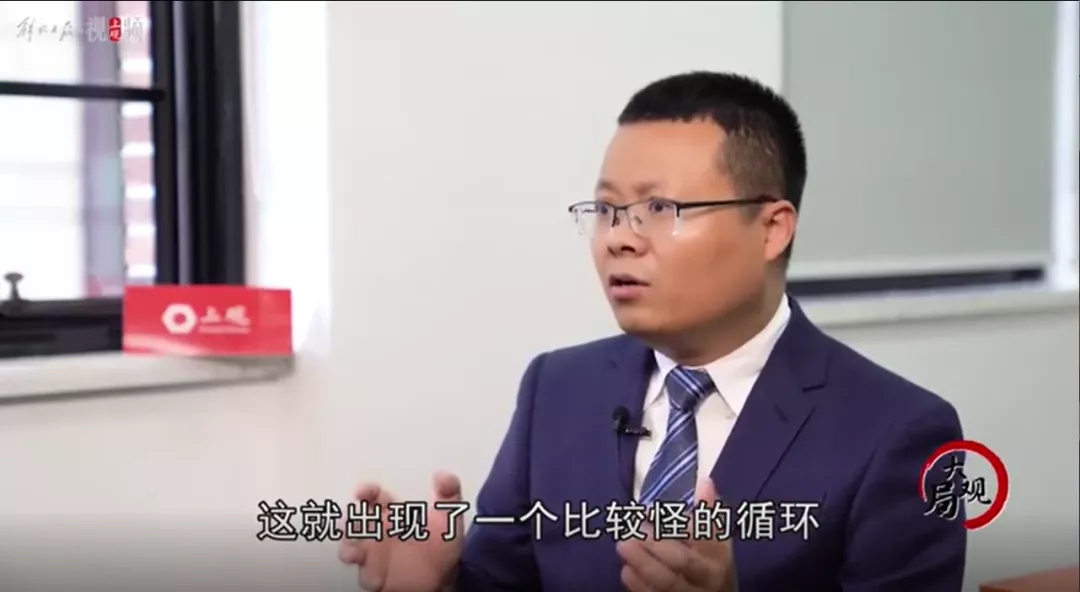上海交大赵大海教授接受解放日报·上观新闻专访:东京奥运会的争议与新冠疫情防控
2021年7月20日,上海交通大学-耶鲁大学卫生政策联合研究中心执行主任、上海交通大学国际与公共事务学院教授赵大海,在上海交通大学徐汇校区接受了解放日报·上观新闻的视频专访,就日本东京奥运会的举办与全球新冠疫情的防控进行了解释。现将专访内容摘录如下。

我就东京奥运会与全球新冠疫情防控这个话题,同大家聊一聊。
第一,东京奥运会的举办出现了比较多争议的声音。为什么会有争议的声音呢?首先是现在全球新冠依然处于大暴发的阶段,对于日本本国而言,每天的新增病例还在三千左右,而作为举办城市的东京,每天的新增病例也在一千以上。在这样的背景之下举办奥运会自然而然就遭到了很多公众的反对,甚至包括日本本国的居民也采取游行示威等方式反对举办奥运会。
第二个话题就是,为什么在一片争议的声音当中,还是举办了本届奥运会呢?这主要的原因还在于日本政府以及国际奥委会、东京奥组委等相关的经济利益。前几天我们看到刚刚结束的欧洲杯,欧洲杯的举办跟奥运会的举办的原因是异曲同工的,都是为了相关利益方的经济利益。据统计,日本政府向东京奥运会的举办投入了大约800亿人民币的经费预算;同时,东京奥组委还跟大量的企业签订了赞助合同以及广告合同等等。因此,东京奥组委、日本政府、国际奥委会共同希望本届奥运会顺利举办。当然还有一个原因在于,运动员的职业生涯相对而言是比较短的,各国的运动员都希望参加本届奥运会;否则,三年之后的下一届奥运会,他们可能已经过了自己运动生涯的巅峰期。
第三个话题就是,东京奥组委会以及日本政府能不能为各国参赛运动员做到疫情的基本防控?答案目前来看是比较困难的。据东京奥组委的相关数据的披露,7月1日到7月19日,东京奥运相关的工作人员、运动员当中已经发现了58例新冠的确诊病例。那可想而知,在7月23号比赛正式开始之后,确诊病例的数字一定会出现比较大的攀升。虽然我们都知道,东京奥组委会、日本政府已经出台了相对比较严格的疫情防控措施,但目前来看,这些防控措施的效果比我们预期的肯定是大打折扣的。显而易见,日本在过去的一年半的时间之内都没有采取严格的措施来防控住疫情,那对于奥运会、奥运场馆的疫情防控而言,日本也难以拿得出像样的疫情防控的办法来。

现在就有一个话题,经济发展和疫情防控,二者之间到底应该是优先选择经济发展还是优先选择疫情防控。其实世界上大多数国家一直在经济发展与疫情防控二者之间徘徊。当疫情出现相对缓和的时候,各国基本上都恢复了经济的发展;随着经济的发展,疫情必然出现反弹,倒过头来再进行疫情的防控,这就出现了比较怪的循环。
当然,作为一名公共卫生的研究者,我还是希望东京奥组委、日本政府出台更为严格的疫情防控措施,来保护各国参赛运动员的身体健康。谢谢大家!
供稿:国务学院
日期:2021年7月22日
Dahai ZHAO’s Exclusive Interview with Jiefang Daily | Shangguan News: Tokyo Olympics and COVID-19 controversy
Dahai Zhao, Executive Director of Shanghai Jiao Tong University-Yale University Joint Research Center for Health Policy and the professor of SIPA, SJTU, accepted a video interview with Jiefang Daily and Shangguan News at the Xuhui campus of SJTU, talking about the Tokyo Olympics and the prevention and control of the global COVID-19 epidemic.
I will share my ideas of Tokyo Olympics and the global response to COVID-19.
First, there have been many controversies over the Tokyo Summer Olympic Games. Why the controversial sound? First of all, the global COVID-19 pandemic is still in the stage. For Japan, there are still about 3,000 new cases per day, and Tokyo, the host city, is seeing more than 1,000 new cases per day. In this context, Tokyo Olympics has been opposed by the publics. Japanese citizens also protested against Tokyo hosting Olympics.
Second, why did Japan hold the Games amid such controversy? This is mainly due to the economic interests of Japanese government, the International Olympic Committee and Tokyo Organizing Committee. A few days ago, we saw European Championship just ended. The European Championship was held for the same reason as the Olympic Games, for the economic benefits of the relevant stakeholders. According to statistics, the Japanese government has invested about 80 billion yuan in the budget of the Tokyo Olympic Games. At the same time, Tokyo Olympic Organizing Committee has also signed sponsorship contracts and advertising contracts with a large number of enterprises. Therefore, Tokyo Organizing Committee, Japanese government and INTERNATIONAL Olympic Committee all hope on smooth opening. Of course, it's also because athletes‘ careers are relatively short, and they want to be there. Otherwise, the athletes may be past the peak of their sports careers when they come to the next Olympics in three years' time.
Third, whether Tokyo Olympic Organizing Committee and the Japanese government can prevent and control the epidemic for athletes from all over the world or not. The answer, at the moment, is difficult. Between July 1 and July 19, there were 58 confirmed cases of COVID-19 among staffs and athletes involved in Tokyo Olympics, according to the organizing committee of Tokyo Olympic Games. It is conceivable the number of confirmed cases will rise significantly after the start of the competition on July 23. Although we all know Tokyo Olympic Organizing Committee and the Japanese government have introduced relatively strict public health management measures, the effect of these measures is certainly weak than we expected. Obviously, in the past one and a half years, Japan has not taken strict measures to prevent and control the epidemic, so it is difficult for Japan to come up with decent measures to prevent and control the epidemic in the Olympic Games and Olympic venues.
Now there is the controversy, economic development and epidemic prevention and control, which should be the first choice. In fact, most countries in the world have been torn between economic development and epidemic control. When the epidemic situation eased, countries basically resumed economic development. With the development of economy, the epidemic will inevitably rebound, and then the epidemic prevention and control will be carried out strictly again. This is a strange cycle.
Of course, as a researcher for public health, I still hope Organizing committee of Tokyo Olympic Games and Japanese government will introduce more stringent epidemic prevention and control measures to protect the health of athletes from all countries. Thank you!
Contributor: SIPA, SJTU
Date: July 22, 2021

